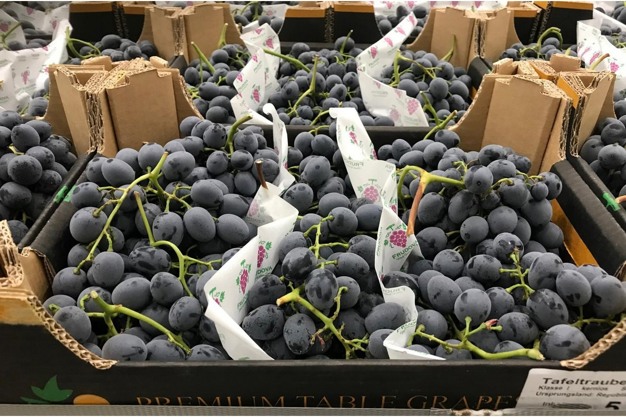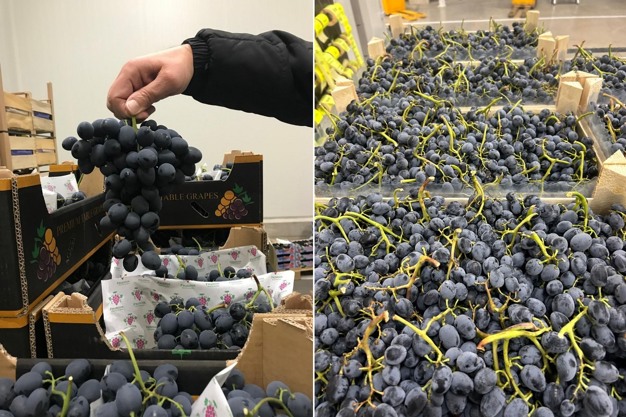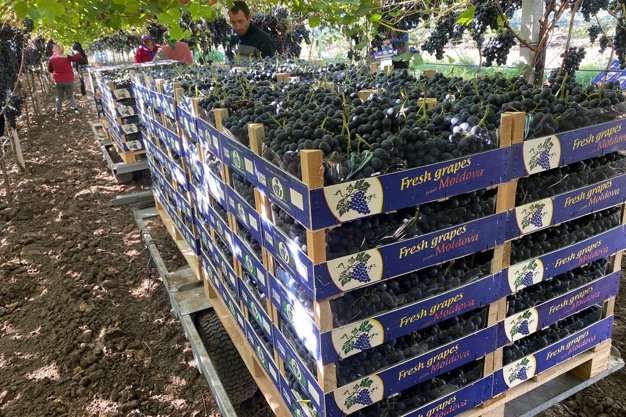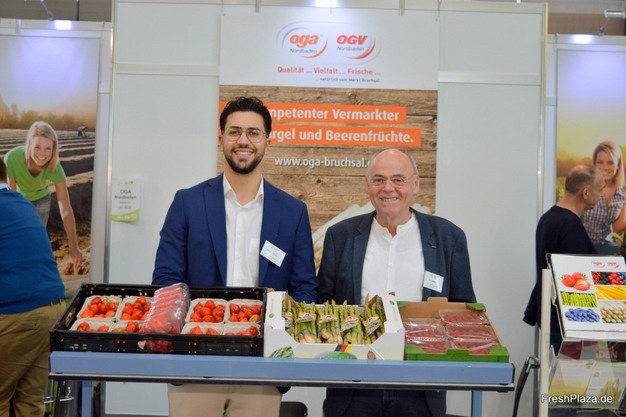In week 47, the last Moldova grapes of this year's season were loaded at the OGA-OGV in Bruchsal. "At the start of the season in early September, there was heavy rainfall in the major growing regions in the south of the country. This increased the risk of the grapes bursting and ultimately led to losses of up to 20 per cent," reports Kurt Halder, Head of Eastern European Imports at OGA-OGV in Bruchsal. As long as there is demand, it will be possible to supply stock until February, says Halder.

Moldova grapes. Prices have risen moderately this year and are around 5 per cent higher than last year.
OGA-OGV made its first contacts in the Eastern European republic during a seminar in 2018. For around seven years, the company has primarily focussed on importing and selling Moldovan plums following the domestic German season. However, blue, seeded table grapes of the Moldova variety are also imported. "Moldova is currently the only variety that is exported on a large scale. It has an excellent flavour and is similar to Alphonse Lavallée, a premium grape of French origin established in Germany. However, variety trials are also being carried out with seedless grapes. It therefore cannot be ruled out that the Republic of Moldova will be exporting seedless grapes in a few years' time. However, it must be said that seedless grapes are more sensitive to cultivation, which is why the risks are higher from the producer's perspective." An initial evaluation of the variety trials will take place next year, Halder adds.

Moldovan table grapes are now primarily supplied in cardboard boxes instead of wood. However, they are still slightly cheaper to sell than the Alphonse Lavallée from France, which has a comparable flavour.
The OGA-OGV began in 2019 with a modest trial quantity of five tonnes; this year, the total import quantity was around 120 tonnes, divided into six trains. Halder: "We are seeing increasing demand from both wholesale markets and food retailers. Some medium-sized food retail chains already have our products in their programmes, and we are also aiming to be listed with the leading chains in the future. What helps us in particular is that Moldovan producers are learning quickly, professionalising and adapting to the requirements of our markets. Recently, for example, they have switched from wooden crates to cardboard boxes." Delays in delivery due to longer transit times at the Romanian border crossing are also accepted by the customer. "After all, this rarely leads to increased rejection or spoilage."

The Republic of Moldova still only exports the seeded, blue Moldova grape. According to market studies, around a third of the total grape turnover achieved in Germany still comes from seeded grapes.

Umut Tekbas and Kurt Halder at the OGA-OGV stand at this year's expoSE in Karlsruhe.
Photo credit: OGA-OGV
For more information:
Kurt Halder
OGA-OGV
Industriestr. 1-3
D-76646 Bruchsal
Tel: +49 7251 8002-0
Fax: +49 7251 8002-99
[email protected]
www.oga-bruchsal.de
